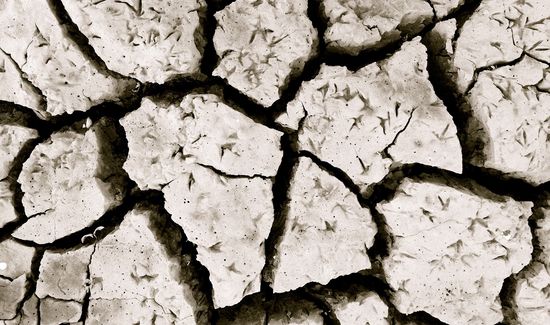Latest Concern for a Major Health Funder: Drought and Extreme Temps
/
About a year ago, RWJF started digging deeper into unexpected factors in public health and equity problems. The latest such grant ventures into a huge issue for philanthropy right now—water, specifically drought.
Water quality and supply in the U.S. is a huge and growing issue among philanthropists, as population growth, climate change, and aging infrastructure pose a slew of problems for communities of all kinds.
California-based funders have taken the lead in the American West—unsurprising, considering the pressing scarcity issues in the region, and drought that’s troubled the state for going on five years.
It’s not just an issue for environmental funders, and indeed, one of the reasons water is such a bustling field right now is the spread of related societal implications.
Related: "Extremes Are Becoming the Norm." Why Water is the Next Big Issue For Philanthropy
Case in point—Robert Wood Johnson Foundation has awarded a $284,680 research grant to the University of California, Riverside to study how drought, extreme temperatures and resulting water policy impacts health, with an emphasis on poorest communities.
Principal investigator Kurt Schwabe, who has been doing a lot of innovative work lately around economics, policy and water management, will compare 20 years of health data with other datasets related to weather and drought. Schwabe will look not only at outcomes like mortality and infant birth rate, but also emotional distress, binge drinking and self-rated health to try to add depth to our understanding of water policy’s impacts.
Policymakers take into account many factors when trying to understand the negative impact of drought and water supply restrictions—agriculture, economics, needs of cities—but there’s not much data out there on the health effects. And Schwabe suspects economic stats like the $2.7 billion lost in 2015 in California only really scratches the surface. The economic impact to the state on the whole may actually be far less devastating than the health impacts, especially in poor communities that aren’t currently part of the equation.
Take into account the potentially long-term and severe physical and emotional distress that drought and extreme temperature have on poor, often immigrant communities, and it could change the way decision-makers respond to threats.
The grant is part of a larger program at RWJF, and a trend in health philanthropy overall, to drill into the data behind some of the upstream causes of poor health outcomes. RWJF, in particular, is obsessed with data and how it can be used to improve health.
Related:Heading on a New Mission, the Mother Ship of Health Philanthropy Wants More Answers
The foundation launched in summer 2015 a program with a $25 million commitment over three years for innovative research related to health, emphasizing sectors “not typically associated with health,” like transportation and housing. The water grant comes from one branch of that program, Evidence for Action. It all feeds into the funder’s “Culture of Health” mission to take a more comprehensive look at what determines health and well-being, beyond the health care sector.
It’s also worth noting that RWJF was one of 10 funders that made an allocation of $125 million to help Flint, Michigan recover from its water crisis. So the consequences of water management on public health are definitely on its radar.
There’s another major theme here in this grantmaking that we’re seeing a lot in philanthropy and expect to expand, although it’s not explicitly part of the research—climate resilience. As the negative consequences of climate change become more apparent and severe, there are communities that are feeling that pain far worse than others. You can guess where they land on the socioeconomic spectrum, and that dynamic is only going to get worse.
Many funders, such as Kresge and Rockefeller, are making it a priority to assist these communities, and health and emotional distress will be a huge component that weaves into this multifaceted area of need.
Related:Why Kresge's Helping Low-Income Communities Lead on Climate Change








